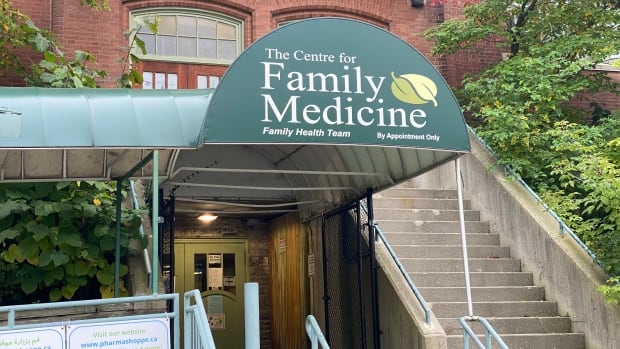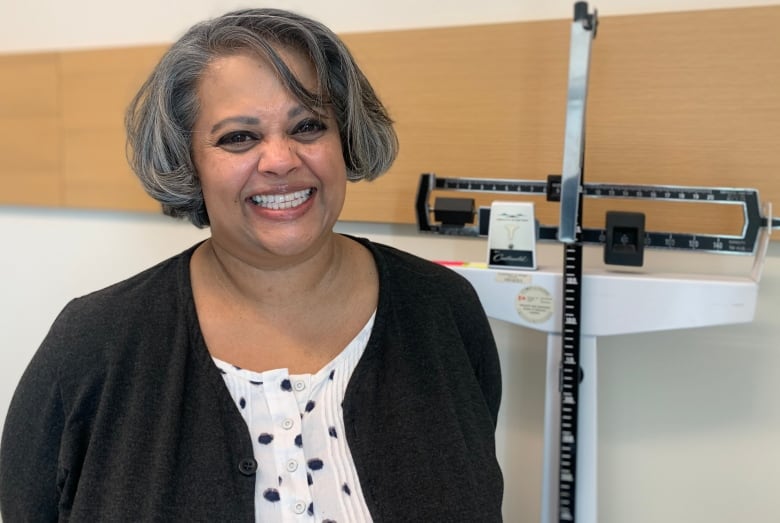
The Current19:23$100,000 signing bonus? How some towns are luring doctors
Canadian municipalities are offering family doctors thousands of dollars and other benefits to work and live in smaller cities and towns, health-care recruiters and municipal leaders say.
More than six million Canadians lack regular access to primary care physicians, a problem that’s been connected to poor health outcomes and increased strain on the health-care system.
This is particularly an issue away from outside of major urban centres.
Docs by the Bay, a physician recruitment program based in Trenton, Ont., is offering $100,000 to new doctors or medical residents interested in setting up a full-time family practice in the area, Paula Mason, manager of physician recruitment, told The Current guest host Susan Bonner. Physicians are required to work for five years in the region in order to keep those funds.
“The competition is very intense,” says Mason.
The program has recruited 18 family physicians to the region in the last seven years but it’s “getting more difficult every day” because of increased demand, says Mason, who is also a past chair of the Canadian Society of Physician Recruitment.
Mason says there are now more physician recruitment programs in Ontario and elsewhere, and that incentives differ from province to province, and also on specific needs of the community.
In Huntsville, Ont., a physician can earn a $60,000 bonus for taking over an existing practice and $80,000 for setting up a new practice. If someone refers a health-care worker to fill vacant job position at Blanche River Health, in Kirkland Lake, Ont., they could receive $2,000.
“We’re all competing for the same pool of candidates. So, it’s a matter of making your community stand out,” Mason explained. “If you’re offering $25,000 and the community next door is offering $50,000 … money talks. If you go to $50,000 then they go to $75,000, where does it end?”
Residents in Trenton have also banded together to offer physicians incentives like signing bonuses, club memberships, free use of a car and reduced rent.
Municipal inequities
Recruiting programs are typically funded by municipal tax dollars, which vary between cities, creating disparities, says Jeff Leal, mayor of Peterborough.
“Municipalities that have lucrative [property tax] assessment bases are in a position to provide more assistance than other municipalities,” Leal said.
He calls municipalities competing with each other to offer physicians large financial bonuses a “race to the bottom.”
Leal says the province should implement a rule similar to the Ontario Municipal Act, which banned bonuses doled out for industrial commercial developments, and is advocating for more equitable solutions in physician recruitment.
Peterborough’s recruitment bonus package includes $15,000 plus something called the “Whole Town Village” incentive program for new physicians who add up to 650 patients to their roster. There’s also the “Hometown Proud” program that rewards physicians originally from Peterborough with bonus funding when they return to work there.
Leal calls access to primary care “the number one building block” for someone’s overall health, and said he hopes incentives like these will improve physicians working conditions and address understaffing and burnout.
Taking care of health-care workers
Many family physicians are prioritizing a healthy work-life balance when considering their career opportunities, Mason says. Factors like job opportunities for their partners, support for their children, safety and location are important parts of their decision-making process.
Dr. Maria Mathews, family medicine professor at Western University and a Canada Research Chair in Primary Health Care and Health Equity, says recruiters need to listen to what family physicians are asking for and make adjustments accordingly.
“New grads don’t necessarily want to run a new practice. They want to come in and take care of patients. So, maybe we need to rethink what the role of the family physician is and the team in which they work,” Matthews said.

Most family physicians in Canada operate as fee-for-service small business owners, who’re reimbursed for their clinical activity by their provincial government. However, there are alternate payment structures such as salaries and sessional payments and contracts.
Many family physicians want to work as members of an integrated health-care unit, Matthews says. She says those recruiting efforts and incentives should be offered to other health-care professionals as well .
“If we only recruit one type of player, the family doctor, we forget about the rest of the team, and that creates a lot of inequities within that team when you finally get one,” Matthews said.
Retention is key
Given the key to high-quality primary health care is continuity between health-care providers and patients, Matthews says she’s concerned about high turnover rates for family physicians in the cities where they’ve been recruited. She’s studied financial commitments like return-for-service agreements — incentives given to trainees to move to a specific community — and found they don’t always work.
“Many of them will opt to either renege on the agreement, or just simply buy out that contractual obligation, then the community ends up without a physician or with a physician who doesn’t stay there for very long,” Matthews said.
She says it’s important to track this information and the effectiveness of the programs because of the huge sums of public money spent on recruitment.
Matthews says she’s concerned family physician shortages are happening now in communities all across the country, including large urban centres, like her hometown of London, Ont.
“I think it just speaks to the fact that there is a shortage and it’s being felt in places that we did not used to think of as having a shortage.”